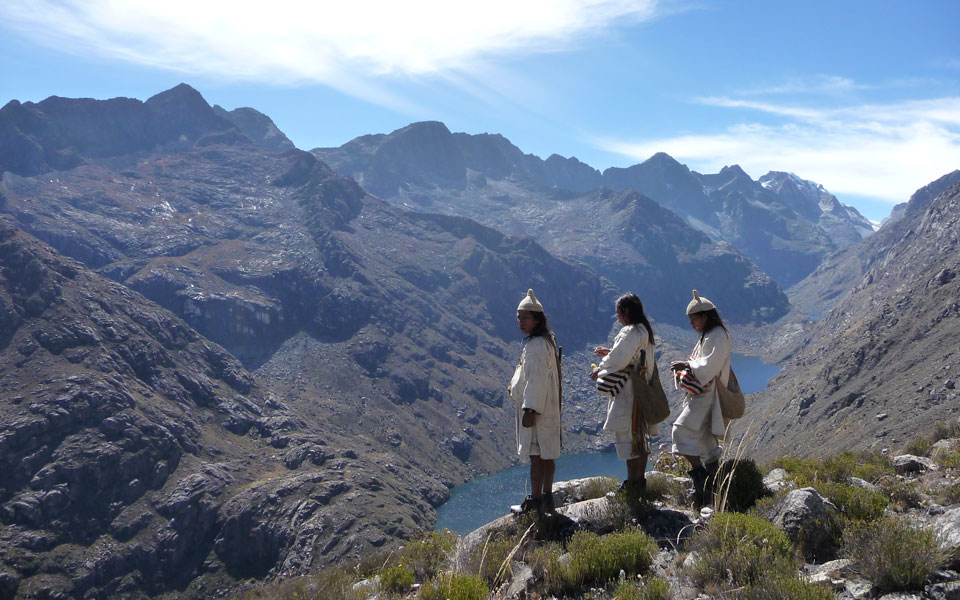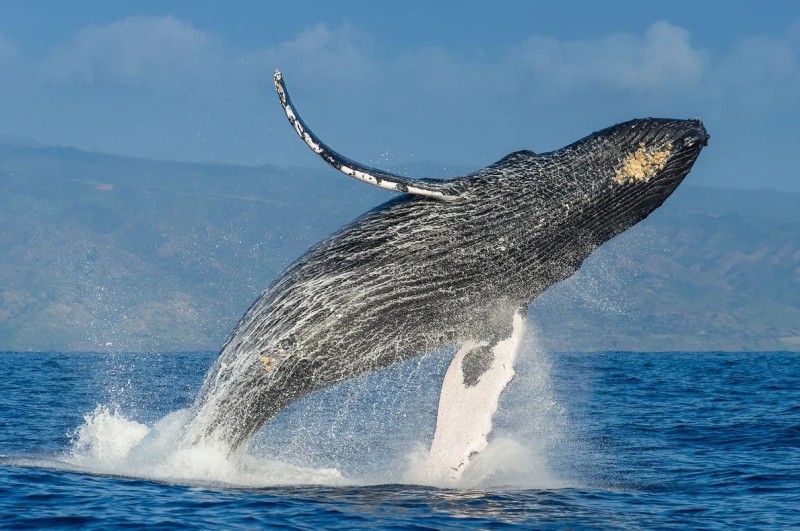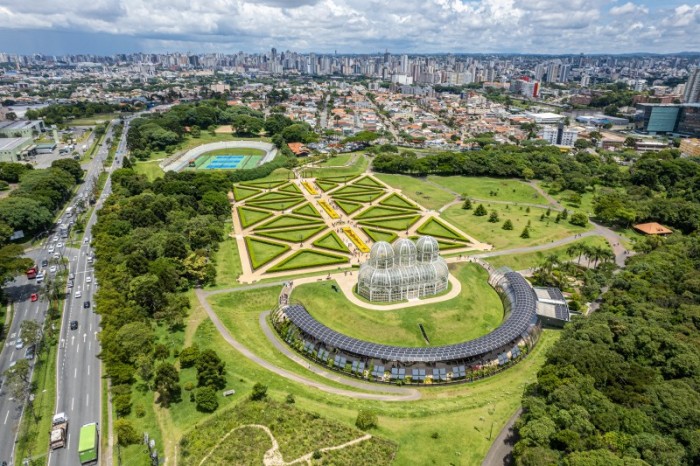Text by Association Tchendukua, photos by Eric Julien – first published in www.elcafelatino.org
There are many different words to describe them: indigenous, archaic, native, traditional, primitive, wild, natural, roots… There are about 300 million of them, spread over 77 countries. Colonised by invaders who proclaimed themselves “civilised”, they were reduced to slavery, victims of forced displacement, decimated by epidemics imported by the colonists. Today, some of them are organising themselves to try to defend their identity, their rights and their territories, but they are struggling to make their voices heard. Faced with the over-exploitation of natural resources on their ancestral lands, and the pressure of modernity, their survival is more threatened than ever.
Yet these “societies”, which have never broken their links with nature and life, carry essential messages, a source of inspiration for the major challenges facing our modern societies.
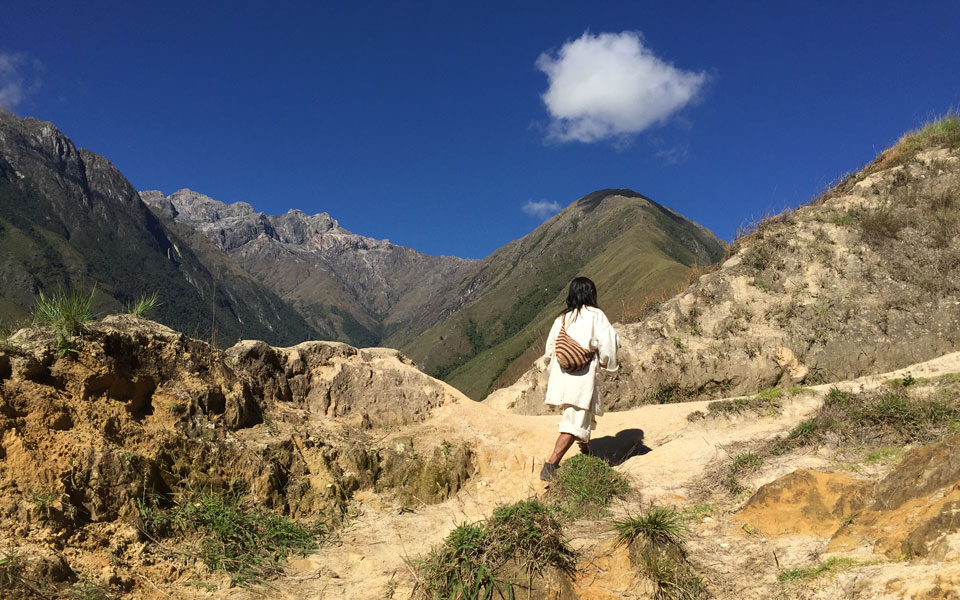
The Kogi Amerindians, who live in Colombia, are part of these societies. Numbering 20,000, with no historical break for 4,000 years, they are the heirs of the pre-Columbian civilisation of the Tayrona, just like the Wiwas, the Arhuacos and the Kankuamos. Driven out of their territories by colonisation, violence and the “modern” world, they live tucked away in the highlands of the Sierra Nevada de Santa Marta, the highest coastal massif in the world and a place of exceptional biodiversity. For the Kogis, the Sierra Nevada is more than just a mountain: it represents the “heart of the World”, where “Mother Earth” transmits to them the moral and spiritual codes that govern all aspects of their society. According to their vision of the world, the Kogis are the “Guardians of the Earth”: their role is to maintain the great balances of nature. At a time when the Sierra is plagued by deforestation, pollution, drug trafficking and mega-projects, they are striving to heal the Earth, allowing the forest to regain its rights, the animals to return, and the springs to flow again.
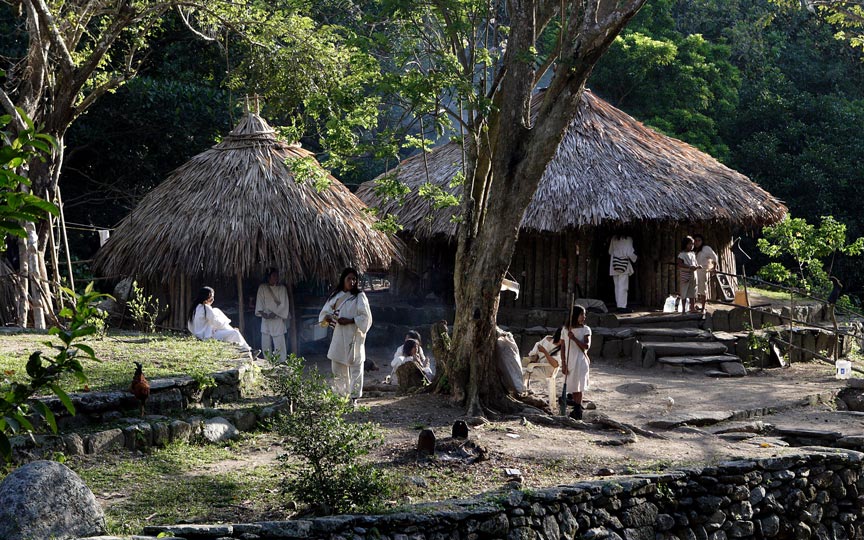
How could this be so different people, living without electricity, without money, in the middle of the forest, inspire us? First of all because, despite their differences, the Kogis are above all human beings confronted with the same essential questions as all human societies. To decide, to heal, to hope, to love, to build, to dream, to manage a conflict… As the anthropologist Claude Lévi-Strauss said, “there is no primitive civilisation, nor evolved civilisation, there are only different answers to identical fundamental problems”. For the Kogis, these answers are based on principles of life inherent to nature and not on laws enacted by men. This is what Marie-Hélène Straus and Eric Julien, respectively President and Director of Tchendukua – Ici et Ailleurs, an association that helps the Kogis regain possession of their ancestral lands, describe. In their book Le choix du vivant, the two authors look at nine essential principles of the Kogi society, and how they can be transposed into companies and organisations. Among these principles are otherness, or the “two” principle, and the constant search for balance between opposing but complementary forces: hot and cold, feminine and masculine, day and night. There is also interdependence and the necessary cooperation to approach common goals.
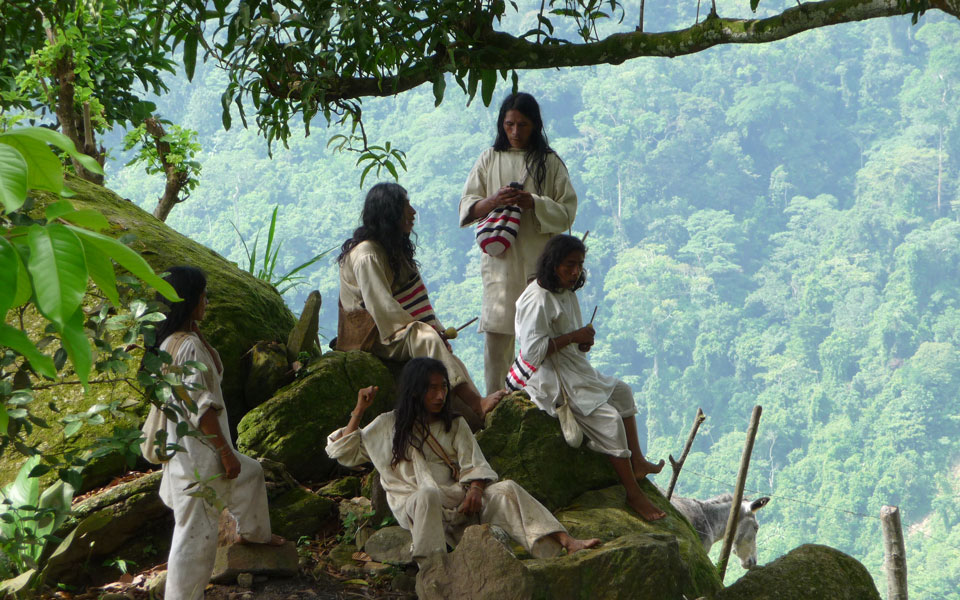
Little by little, bridges are being built between the millennia-old knowledge of the root peoples and scientific discoveries. Communication between trees is one example: it has recently been scientifically demonstrated that trees are capable of transmitting information to each other, at least when their survival is at stake. In Europe, this is a discovery. For the Kogis, it is an evidence that has never been forgotten.
Today, it is above all for technical development that nature is a source of inspiration, with bio-mimicry. The Kogis, or other root peoples, reveal that the principles inspired by the living are also rich in teaching at the social and human levels, to keep violence and destruction at bay.
At a time when the planet has entered a new geological era, the anthropocene, characterised by the impact of human activities on the climate and ecosystems, it seems urgent to question our relationship with nature. It would be absurd to seek to become Kogi, or to adopt their culture indiscriminately. It is simply a matter of accepting to open up to other ways of understanding the world, of decolonising our imaginations, and of listening to their words, “the voice of nature”.
“ The Choice of the Living: 9 principles for managing and living in harmony”.
Reinventing the managerial techniques of our companies by drawing inspiration from our most distant societal practices, those based on a high awareness of the “principles of life”. This is the idea defended by this essential work in order to develop a new “evolutionary spiral for a living management”.
At a time when our model of society, based on exponential growth in a finite world, is pushing company employees to burnout at the same time as it leads to the depletion of natural resources, the two authors propose a path of resilience that allows us to rediscover the meaning of living things.
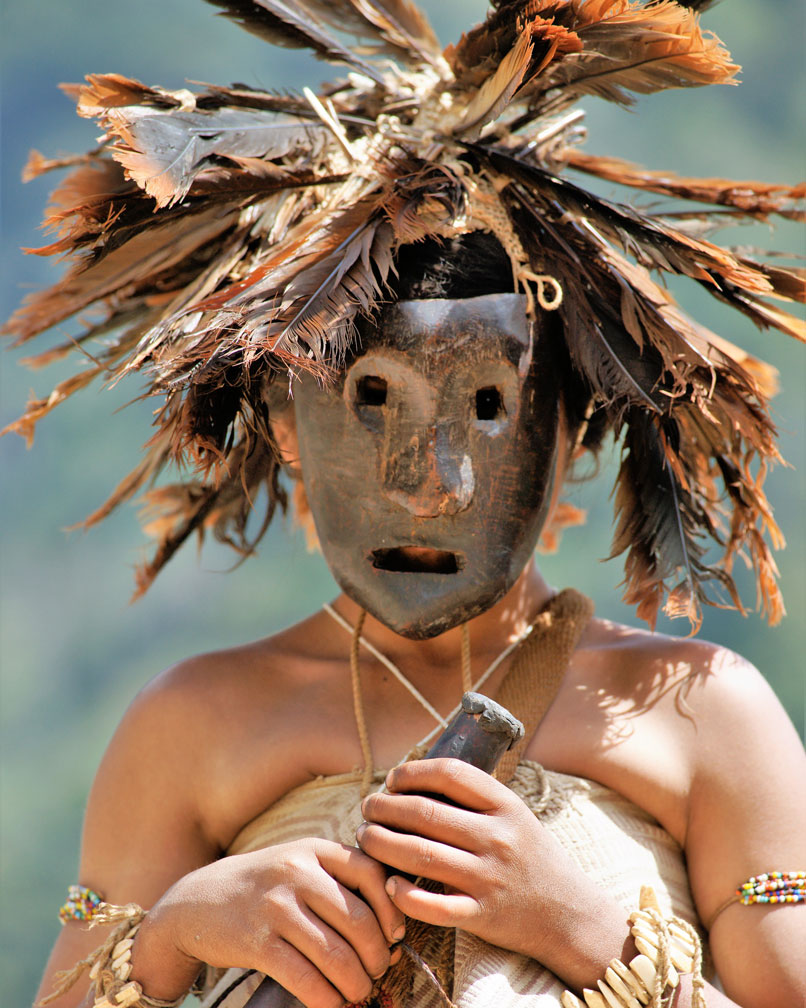
And they have found this path by drawing inspiration from the Kogi Indians, heirs of pre-Colombian societies: faced with workers who claim to feel disoriented by the management style of their superiors, the Kogis demonstrate an ability to communicate, to overcome conflicts, which appears revolutionary in order to imagine a more responsible, efficient and peaceful professional world.
It took our authors six years of research to identify the nine “principles of the living”, a reflection of the nine biological principles implemented by the Kogi Indians, which tend to nourish an “evolutionary spiral for a living management”. Successfully experimented in many French and international companies, these principles allow companies to go through crises, to become more reactive, fairer and more perennial, in order to reinvent themselves and evolve with life.
Tchendukua – Here and Elsewhere
Sponsored by Pierre RICHARD, Edgar MORIN and Thierry JANSEN, the association Tchendukua – Ici et Ailleurs (a member of the IUCN) accompanies “root” societies, and more particularly that of the Kogi and Wiwa Indians, in the recovery of their ancestral lands – the preservation and reconstitution of biodiversity – the transmission and enhancement of their traditional knowledge.
Since its creation, the association carries and tries to embody the values that are the foundation of the Kogi society: responsibility, balance, solidarity, listening and harmony. In France and in Europe, it facilitates dialogue and encounters between their tradition and our modernity, in order to imagine a meaningful future. It brings together those who wish to preserve a way of life based on respect for nature, others and the search for balance.
The association was founded in 1997 by Eric Julien: rescued from pulmonary oedema by the Kogis as he was discovering their territory, he decided, at their request, to help them regain possession of their ancestral lands. In 20 years, more than 1,700 hectares have been returned to them, on which 50 families have settled, and where the tropical forest has been regenerated. In 2015, the first handover of pre-Columbian gold objects, looted by the conquistadors, was organised.

